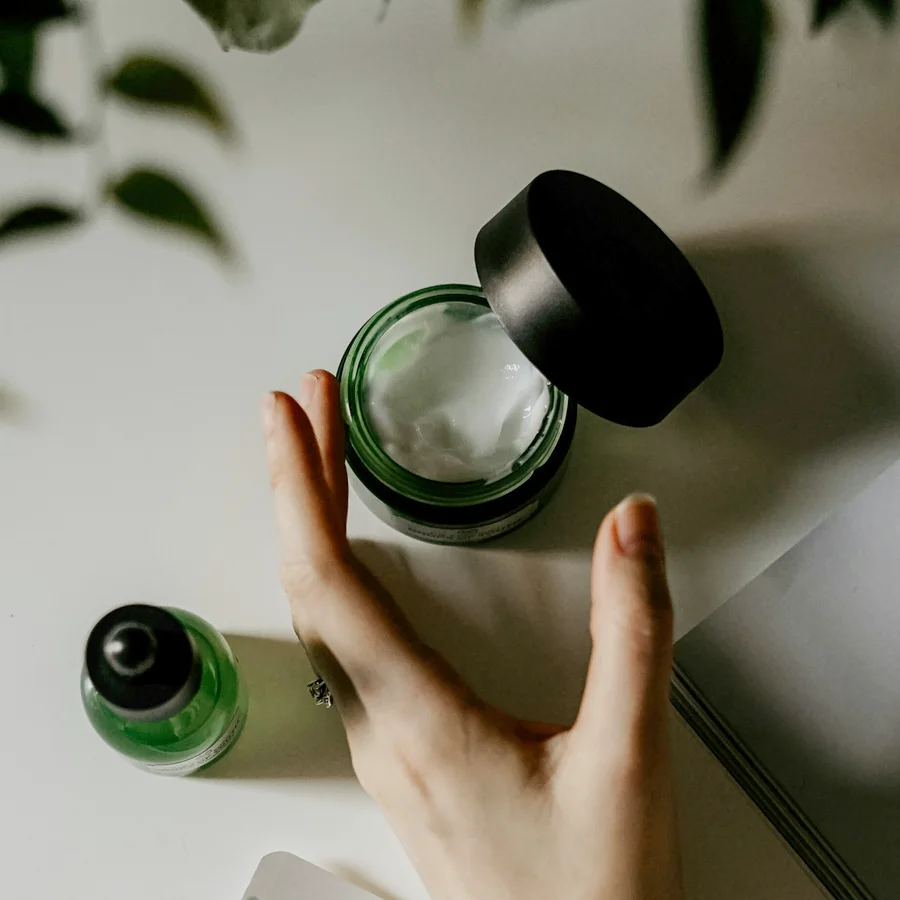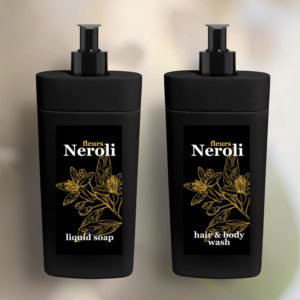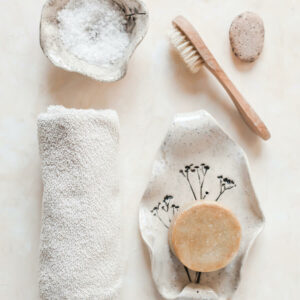
Claims often wink at green, but the reality may be different from appearances. The composition of products is crucial, what looks natural may actually be the result of a clever marketing game. That is why Albogroup cares about the culture of quality cosmetics. Natural and organic are terms that are often misused. Here are some thoughts on the subject.
Albogroup is dedicated to the production of contract cosmetics for hotels, guaranteeing quality and customised packaging.
What are natural cosmetics?
Referring to nature is the way to induce one to imagine the greenness of plant ingredients, the freshness of a waterfall and the scent of flowers dried for their intoxicating essences. Perhaps the image might be a little too romantic. Natural cosmetics is one of the categories that subdivide products according to their composition. This is where percentages come into play, 10% being the value to remember.
Only ten parts out of a hundred consist of plant substances in their pure form, by which we do not mean, however, that the remaining parts are all chemically synthesised. The remaining 90 per cent may in fact contain elements obtained by processing plant substances. A natural cosmetic is always better than a totally synthetic one; the composition may also contain ingredients of chemical synthesis. Natural does not mean of completely organic origin.
What are organic cosmetics?
The correct wording for this type of cosmetics is “organic” or “biological” in the full form; prefixes such as “bio” can often be misleading. The premise is fundamental given the high quality guaranteed by organic cosmetics. Here, organic farming plays an important role; one chooses this category of cosmetics because they are certified with regard to the origin of the ingredients.
A cosmetic can only be defined as organic if it contains at least 70 per cent plant substances in pure form, but this value can go up to 90 per cent. The composition is certainly a strong point but this type of product is chosen because of its low impact on the environment: these come from crops that ban pesticides but also additives and genetic modification techniques. The quality can be appreciated.
Contact us for more information on our services
Natural cosmetics and organic cosmetics: the difference
If traditional cosmetics are those that draw most of their composition from chemistry, natural and organic cosmetics can be defined as two progressive gradations in quality. The strength of natural cosmetics lies in the selection of an albeit minimal part of pure plant elements so as to utilise and enhance their natural properties. Adding plant substances means taking away space from chemically synthesised ones.
Organic cosmetics represent an investment in product quality; behind it is a certified selection of sources. The basic ingredients are those of nature; the detail translates into a higher organic composition and thus better tolerance by the body. True, organic products tend to produce less foam, but this is good primarily for the skin but also for the environment. Efficacy is judged by the more balanced skin.
Organic and natural cosmetics certification: why choose them?
At a higher cost, certified products show a disadvantage compared to all others. What’s behind it? One only has to answer the question to realise that what appears to be a disadvantage, in fact, turns out to be their greatest strength. Italian cosmetics are safe, those with dedicated certification are also respectful. The ingredients make the product, relying on a certifying body is a serious guarantee. Petrolati, parabens and silicones are light years away from the INCI of organic cosmetics; there are vegetable substances that offer the same function but at a much higher quality.
Their effectiveness can be a positive surprise when you try them: where traditional cosmetics tend to create a lipophobic film, organic cosmetics nourish the skin in depth. Cosmetic routines do not just cleanse but can improve tissue. The natural composition tends to reduce skin irritation. Aggressive chemicals are banned. The skin breathes, but so does the environment. Every single ingredient is certified for low-impact production.
Albogroup chooses Cosmos Natural for our amenities
The guarantee is that provided by ECO CERT, the certifying body is among the serious references guaranteeing a high quality product. Organic labelling is the reference for consumers. Quality production is complemented by a level of certification. The result is a line of superior quality. Each solution can be customised with its own logo, deciding on the type of packaging and weights: contract manufacturing allows us to spread quality cosmetics.
In the vast universe of cosmetics, the terms “natural” and “organic” are often used, but not always appropriately. Albogroup guides us on a journey of discovery by clarifying the substantial difference between these two worlds, emphasising how ‘natural’ incorporates a percentage of vegetable elements, while ‘organic’ guarantees an even purer and more sustainable approach, with a higher percentage of ingredients of certified vegetable origin.
On the path towards more skin- and environment-friendly cosmetics, Albogroup chooses Cosmos Natural certification, guaranteeing safe, effective and customisable products.
Turning to Albogroup therefore means making an informed and responsible choice, oriented towards quality and sustainability, without compromise.



